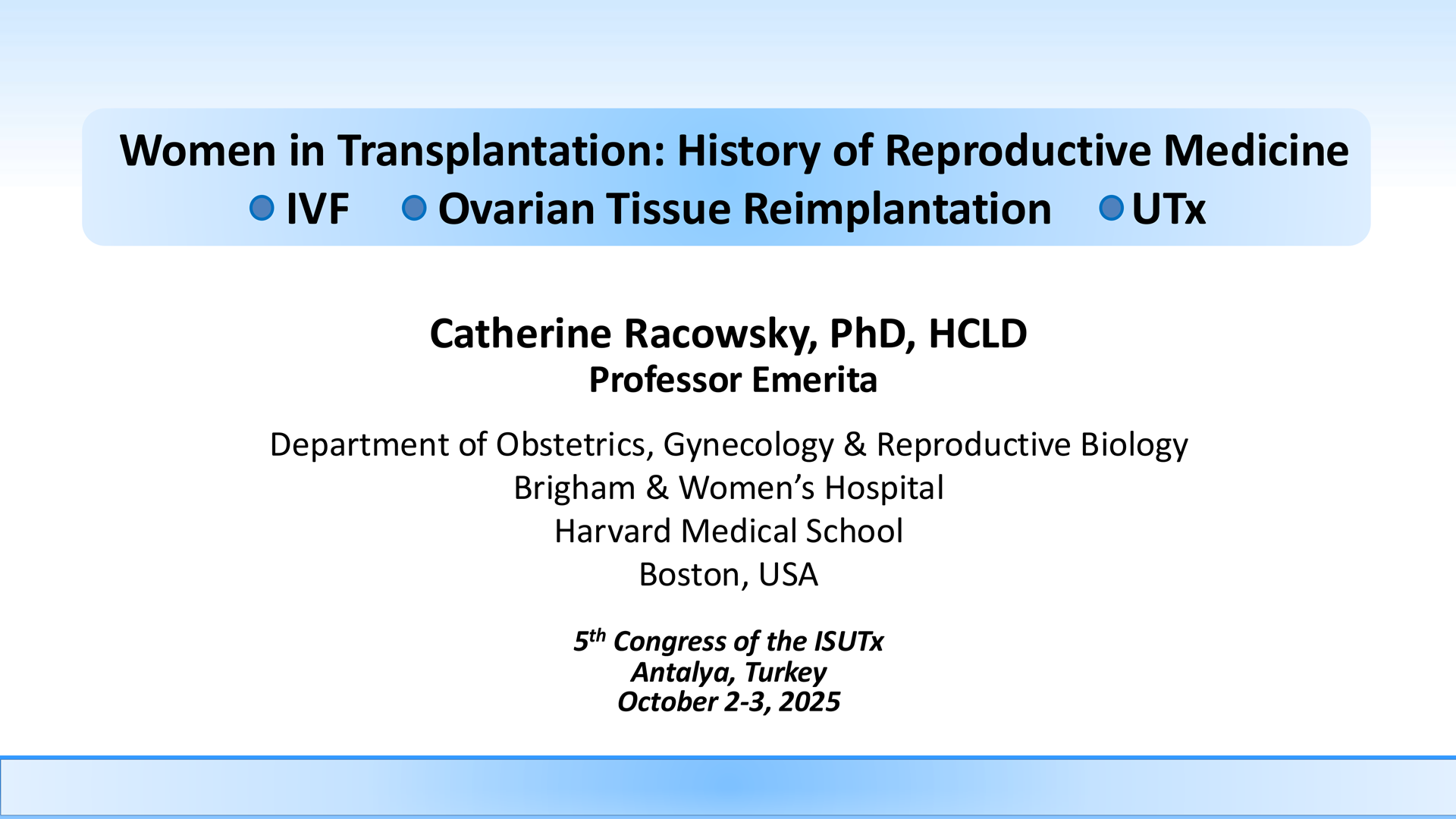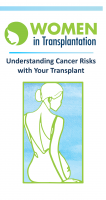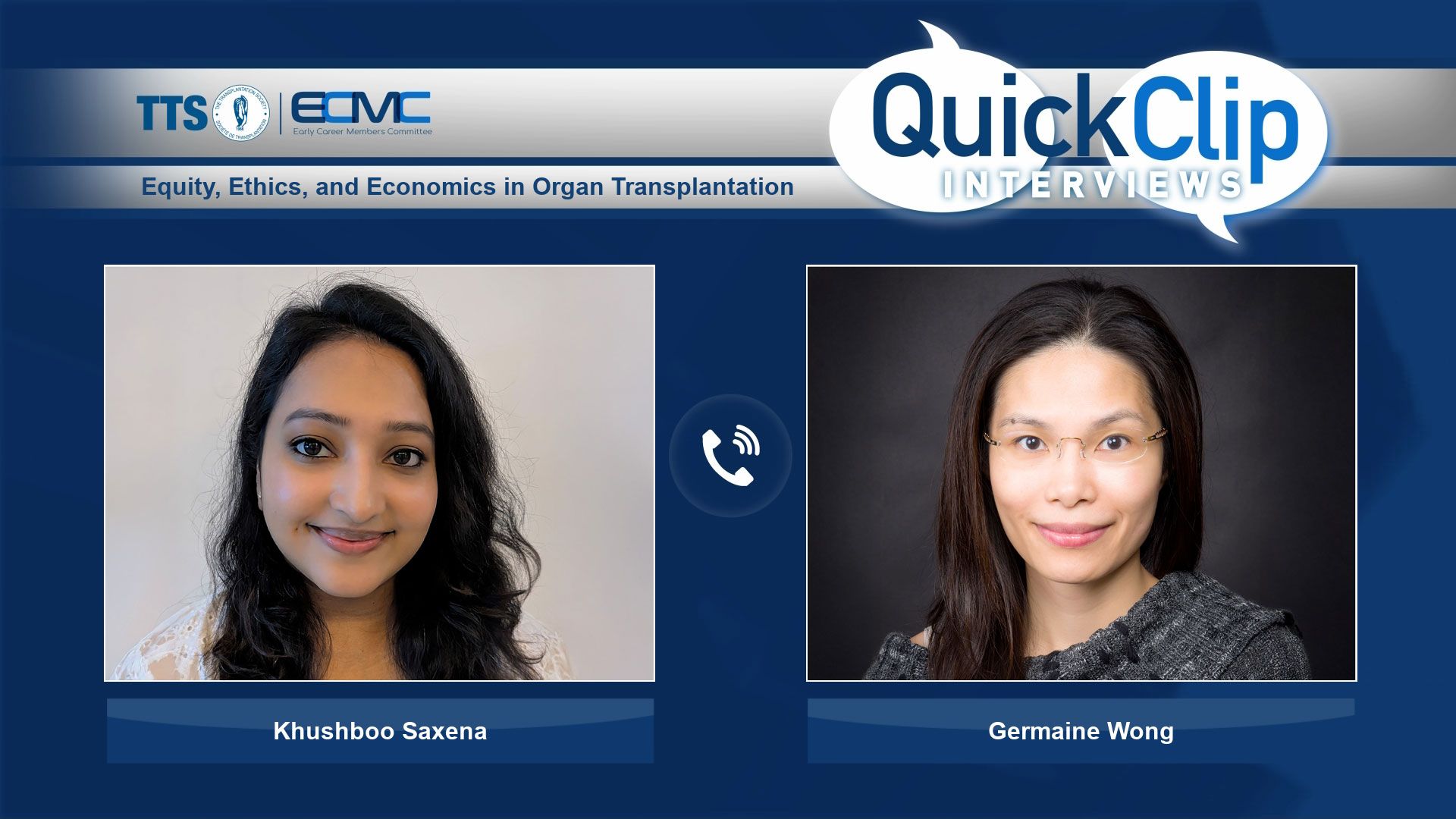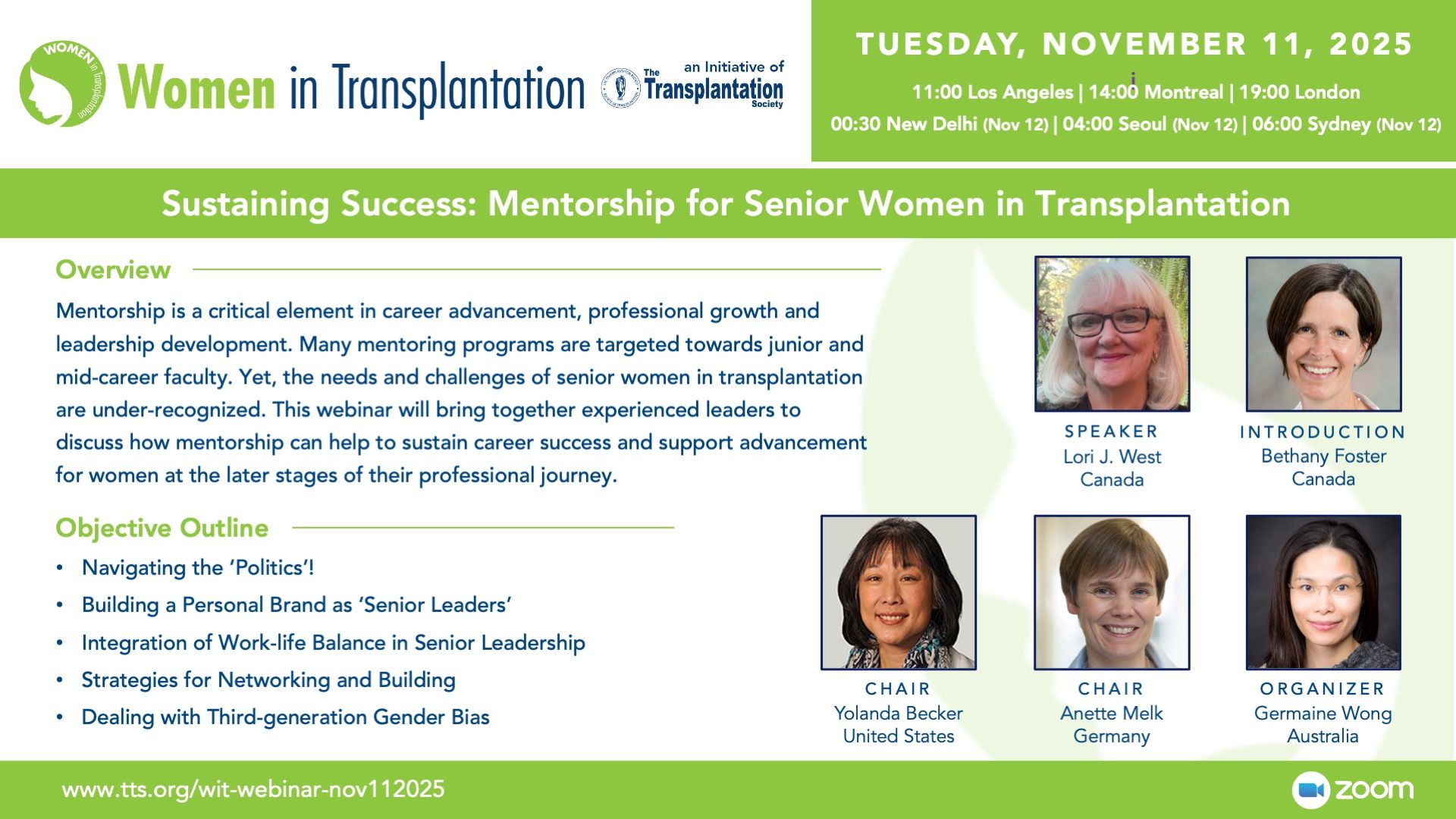Welcome to WIT
Latest Updates
Upcoming Pillar 3 Webinar Presentation
Pillar 3 of Women in Transplantation is excited to announce our upcoming webinar entitled The Perspectives and Experiences of Women with a Kidney Transplant on Access to Healthcare. This extended, interactive webinar will be held on Wednesday, March 4th at 06:00 EST. All are welcome to join us!
To read more about this webinar, see your local times, and to register, please click below.
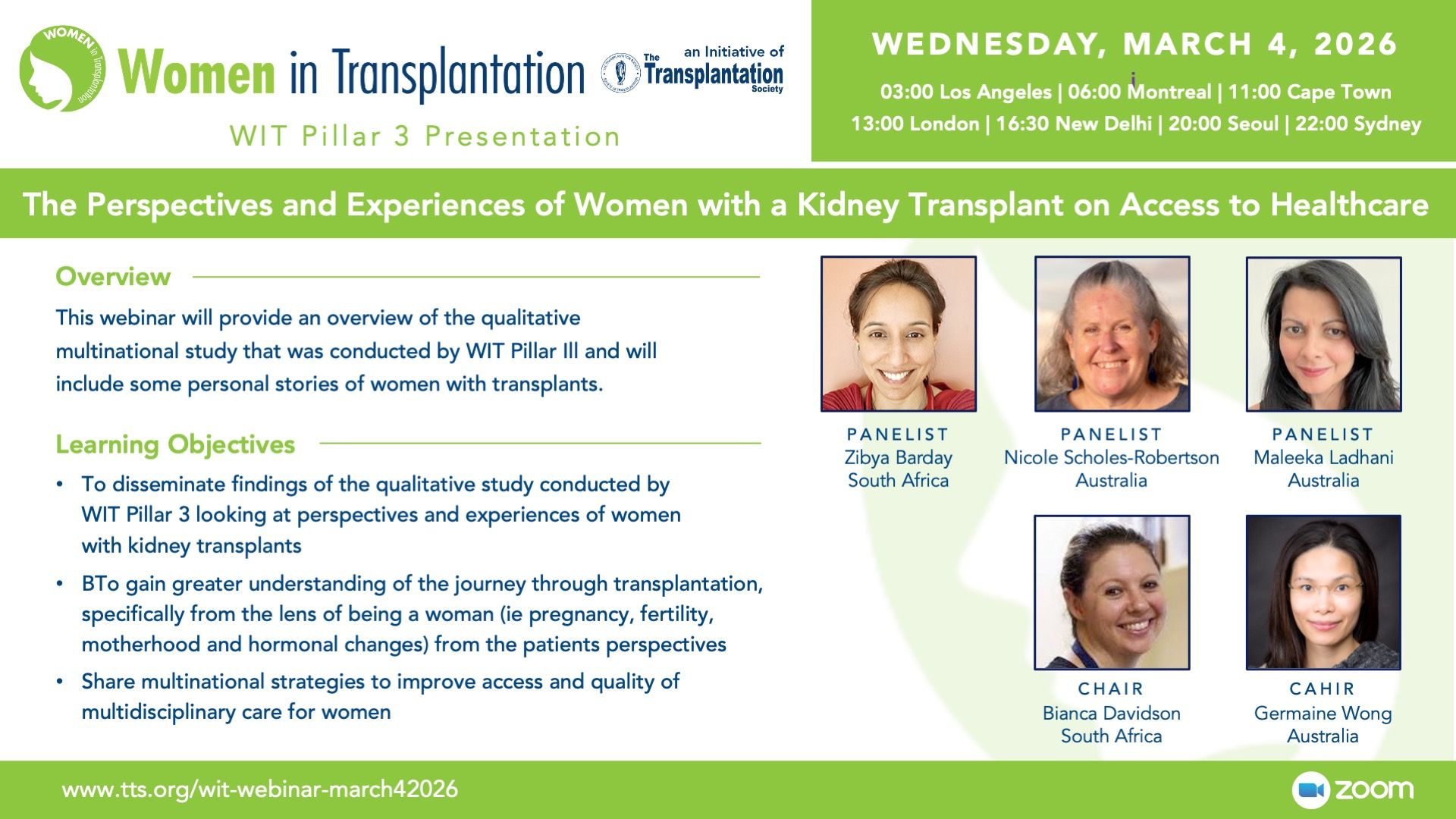
2026 Women in Transplantation Awards – Nominations Now Open!

2026-2028 WIT Research Grants for Research in Gender and Sex in Transplantation



Dr. Germaine Wong
Request for Applications Now Open!
Submission Deadline: April 1, 2026
We are delighted to announce that we will continue to offer a grant to faculty working in low or middle income countries. This grant will allow transplant professionals working in low and middle income countries to work with an experienced mentor from among the WIT membership to address an important question within their own unique context. We hope that this award will spur exciting international collaborations and build more research capacity in lower resource settings.
For the second year, we are delighted to announce that we will run the WIT Research Grant for Projects in Gender and Sex and SOT amongst Indigenous Populations.
Requests for Applications for all grants are now open and are being considered. Please note that we will accept only one mentee application per mentor, and only one application from any single administering institution (defined either by the hospital network or the university or academic institution. This will apply across all grants.
If a WIT mentor is required, this request must be made no less than 4 weeks prior to submission (no later than 4th March 2026).
If you have any further questions and for information on how to apply, please contact Katie Tait (WIT Manager) at This email address is being protected from spambots. You need JavaScript enabled to view it. to request more information.
We welcome all applications and look forward to an exciting competition!
Women in Transplantation: History of Reproductive Medicine
Announcement of 2025-2027 WIT Indigenous Research Grant Winner

-
![]()
Dr. Johanna Birrell
Project Title:
Emory University of Sydney
Australia
Transplant Inequities: Knowledge and Access
Announcement of 2025-2027 WIT Fellowship and LMIC Research Grant Winners

-
![]()
Dr. Annika Gompers
Project Title:
Emory University Rollins School of Public Health
Atlanta, USA
Examining Multilevel Determinants of Intersectional Gender and Racial Disparities in Kidney Transplant Access in the United States

-
![]()
Dr. Khushboo Saxena
Project Title:
Institute of Kidney Diseases and Research Center - Institute of Transplantation Sciences
Ahmedabad, India
Developing and Testing Digital Tools to Expand Access to Kidney Transplantation: A Gender-Focused Approach
Announcement of 2024 WIT Award Winners



MD, PhD, Nephrology
National Medical Center


Senior Consultant
Second Affiliated Hospital, Guangxi Medical University


Iranian Society of Organ Donation
Pillar 3 Patient Brochure
Recent Past Event Recording
The Transplantation Society
740 Notre-Dame St. West, Suite 1245
Montréal, QC, QC, H3C 3X6 Canada
Phone: 514-874-1717
Fax: 514-874-1716
E-Mail : This email address is being protected from spambots. You need JavaScript enabled to view it.
E-Mail : This email address is being protected from spambots. You need JavaScript enabled to view it.

